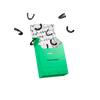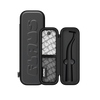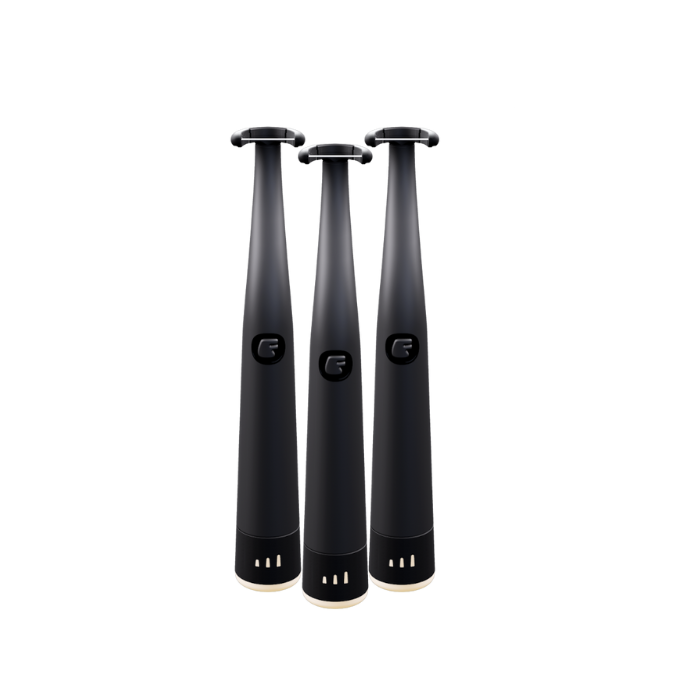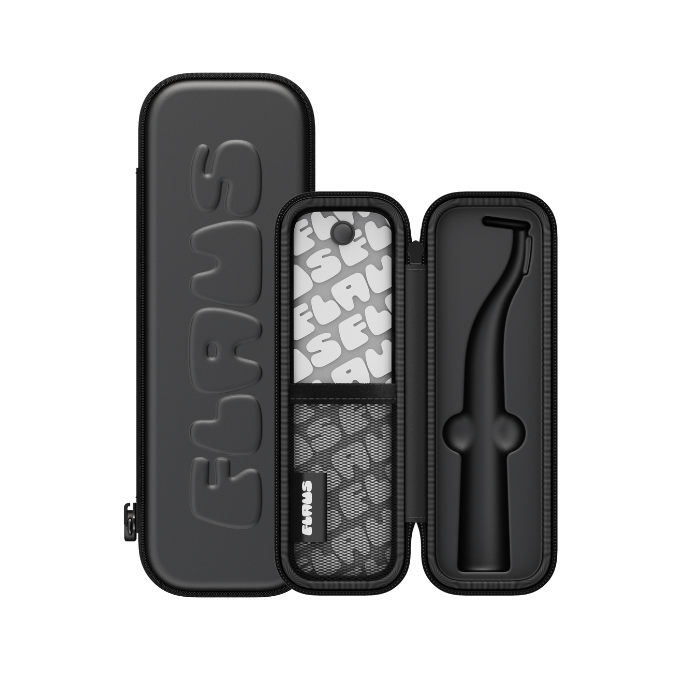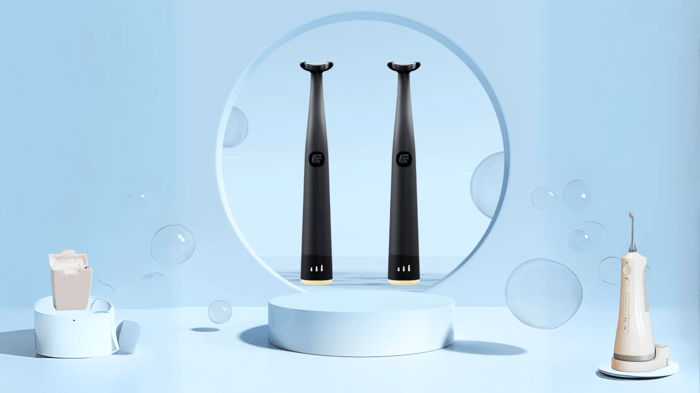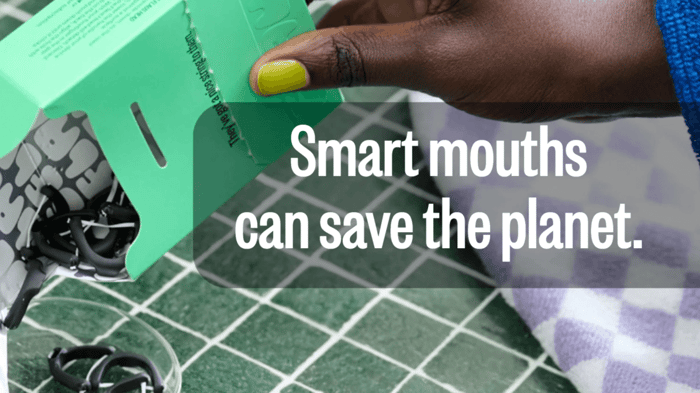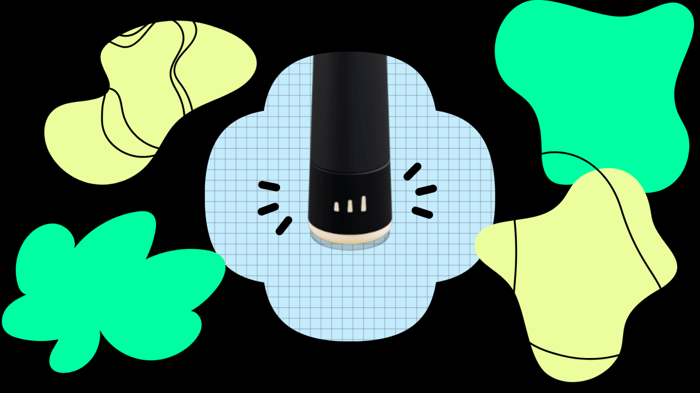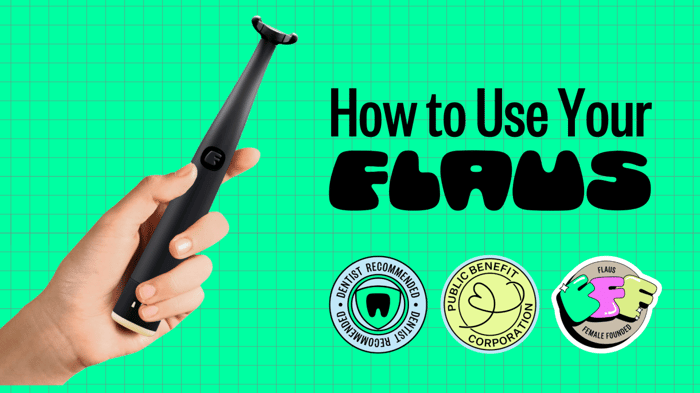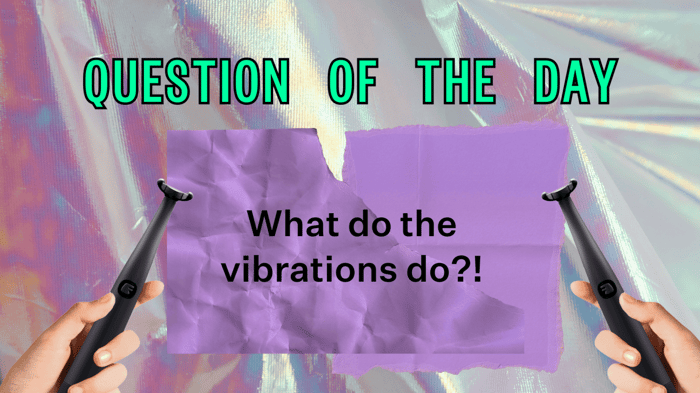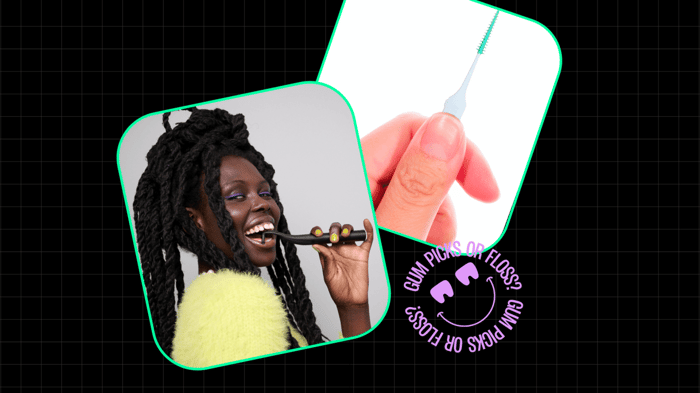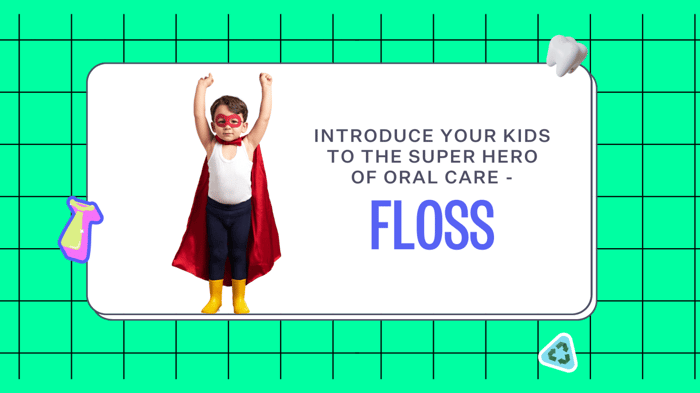We're big fans of keeping your teeth clean any way that works for you, but we've always wondered - are you a -dental-flosser (or Flauser as we like to say), or a water-flosser? As the hot topic of which flossing tools help you maintain first-class oral hygiene wages on, we wanted to look into two frontrunners - dental floss and the water flosser. Each claims to offer different solutions in the battle against plaque and gum disease, but which one truly stands out? Drawing from in-depth research and expert opinions, let's delve into this riveting 'Floss vs WaterPik' showdown to determine your ultimate ally in achieving exceptional dental health.
Both dental floss and waterpiks have their advantages for oral hygiene. Floss effectively removes plaque and debris between teeth while reducing gum disease, while waterpiks use a stream of water to remove food particles and plaque. For optimal oral health, it is recommended to incorporate both methods into your daily routine, but consult with your dentist to determine which option is best suited for your specific needs.
Flossing for Dental Health
Typical daily oral hygiene practices include brushing twice a day, but it is equally important to clean the interdental spaces between your teeth to maintain optimal dental health. This is where flossing comes in handy. Dental floss effectively cleans tight spaces between teeth and removes plaque. It can reduce gum disease in hard-to-reach areas that a toothbrush cannot cover. In fact, brushing only cleans 60% of your teeth - flossing helps to clean the remaining 40%.
Flossing involves taking a piece of floss, curving it into a "C" shape, and gently gliding it up-and-down the sides of each tooth and beneath the gum line. The back-and-forth motion helps remove food particles trapped in the interdental space.
For example, failure to clean between teeth could lead to the build-up of plaque that can cause cavities, bad breath, and gum disease over time.
Advantages and Disadvantages of Flossing
Advantages of Flossing
- Flossing is an affordable way to ensure dental health.
- You can perform it anywhere - at work, home or on-the-go.
- It efficiently removes lodged food particles between teeth that cannot be reached by regular brush bristles
Disadvantages of Flossing
- Flossing requires dexterity and coordination.
- Inaccurate or overzealous flossers may damage their gums or enamel.
- While effective for most users, standard floss may not be suitable for those with braces or orthodontic devices due to their design
Despite the disadvantages of flossing, it remains the #1 effective means of removing plaque build-up and maintaining good oral health. However, if you're struggling to floss or have a specific dental condition, there are alternative options available.
Now that we have understood the effectiveness of standard floss, let's compare it to another popular interdental cleaning method - waterpiks.
- A 2017 study published in the Journal of Clinical Periodontology found that Waterpik was very effective at reducing gingival bleeding.
- A report from Cochrane Oral Health Group revealed that people using water flossers coupled with tooth brushing had a 74% reduction in whole mouth plaque as compared to tooth brushing alone.
Advantages and Disadvantages of WaterPik
When it comes to dental hygiene, brushing your teeth is just one piece of the puzzle. Flossing is equally important and ensures that plaque and food particles don't get trapped between your teeth and gumline. But flossing isn't always the easiest task; sometimes, traditional floss can be difficult to navigate around braces or crowded teeth.
That's where waterpiks come in. A waterpik - also referred to as an oral irrigator - uses a jet of water to remove debris and bacteria from between your teeth, along the gum line and other hard-to-reach areas.
Advantages of WaterPik
- Easier to manipulate if you have dexterity or coordination impairments.
- Cleans effectively below the gum line
Disadvantages of WaterPik
- Not a true replacement for floss
- Cannot achieve the same close contact with the teeth as traditional floss
- Easy to use incorrectly. If your water pressure setting is too high, it could cause gum damage instead of cleansing it. On the other hand, low-pressure settings can be ineffective and provide suboptimal cleaning.
- Potentially messy (water might go everywhere if not set correctly)
- Large and difficult to travel with
Understanding Gum Health
Gum health is a crucial part of overall oral hygiene. If left undetected, gum diseases such as gingivitis and periodontitis can damage the gums and bones that support teeth, eventually leading to tooth loss. One primary cause of these conditions is plaque buildup in-between teeth where traditional brushing might be insufficient. As such, cleaning between teeth through interdental cleaning options like flossing or waterpik use is essential.
The American Dental Association recommends that individuals clean between their teeth using interdental cleaners at least once daily. Neglecting to do so not only leaves food particles lodged between your teeth, but it also leaves plaque buildup that bacteria feast on. This, in turn, leads to gum inflammation.
Overall, maintaining good gum health should form an essential aspect of your dental hygiene routine to combat gum disease and prevent its progress.
Cavities and Enamel Health
Cavities and enamel erosion are common dental problems that can lead to tooth sensitivity, pain, or even tooth loss. The key to preventing these issues is maintaining healthy teeth through proper dental hygiene practices. While brushing regularly is essential, it's not enough to keep your mouth clean. Cleaning between your teeth – where a brush cannot reach – is necessary. This is where the debate between floss vs waterpik arises.
While brushing cleans the surface of your teeth, both flossing and waterpiking can effectively remove food particles from in-between spaces. However, each method has its pros and cons when it comes to protecting your teeth.
Floss Vs Waterpik for Cavities and Enamel
Good oral health means keeping cavities at bay while maintaining robust enamel on our teeth. But which method works better: flossing or waterpiking? Let's first dive into how each one works:
- Flossing: Standard dental floss effectively cleans tight spaces between teeth and removes plaque. It can reduce bleeding and gum disease by removing bacteria-laden plaque from the gum line and reducing inflammation.
- Waterpiking: Water flossers aim a stream of water at the teeth to remove food particles and plaque. Waterpiks are helpful for people with braces, orthodontics, or dental work that makes it difficult to use traditional floss. WaterPiks are not meant as a flossing alternative - but instead, a flossing addition.
When considering cavities' effects on enamel health, floss over waterpik has proven to be more effective in removing plaque buildup. Plaque build-up is what leads to abnormal pH levels in your mouth - an acidic environment that leads to demineralization of enamel—a surefire way to expose yourself to cavities quickly.
Let's consider an example: Suppose there are two individuals with similar lifestyles with identical diets but have different cleaning methods- one using standard floss and the other using a waterpik. The person using floss has been shown through studies to have fewer cavities.
So, which is better? Floss or WaterPik?
TLDR: At the heart of this debate is that both are amazing tools for your oral health! Although WaterPik has several advantages, it is not truly a replacement for floss. We believe that if you are both flossing and using a WaterPik, you are getting a 5 star review from your teeth and your gums!
Is There Another Easy Alternative to Flossing/
If you are someone who struggles incorporating traditional flossing into their routine (but aren't quite ready to play double duty with both floss and a WaterPik), electric flossers might be for you!
Electric flossers are a great way to maintain good oral hygiene, and Flaus is a good option for those looking for an eco-friendly and effective electric flosser. Here are some reasons why using an electric flosser is a great alternative to traditional flossing (it has the same benefits that Water Flossing might not):
- Easy Reach: They can reach tight spaces and molars easily due to the ergonomic handle
- Easy to use: Electric flossers are easy to use and require less manual dexterity than traditional flossing
- Comfortable: They can also be less messy and more comfortable to use than string floss, as you don't have to put your fingers in your mouth
- Encourages good habits: Many people find electric flossers more enjoyable to use than traditional floss, which can encourage them to floss more regularly
- Eco-friendly: Flaus is the world's first eco-friendly electric flosser, which can reduce waste and help protect the environment. Flaus uses 90% less floss than traditional flossing and offers a Flaus head recycling program to ensure that the floss heads are properly recycled at a dedicated oral care recycling facility.
Some of the features that Flaus has include:
- Sonic vibrations: At 18,000 sonic vibrations/min, Flaus moves quickly and easily between tight teeth to massage gums and remove plaque and debris from tight spaces your toothbrush can’t reach.
- Ergonomic Soft Touch Handle: With a design that feels as familiar as your favorite electric toothbrush, Flaus′ premium, ergonomic soft-touch handle gives you full control over hard-to-reach places while keeping your fingers (and the 10 million bacteria that live on them) out of your mouth.
- Waterproof: Whether you are flossing on the go or multi-tasking in the shower, Flaus is waterproof and has you covered.
- High Performing Floss Heads: Floss heads are fitted with high performing glide floss strong enough for the tightest of teeth, made with recyclable plastic and use 30% less plastic than traditional floss picks. You can also recycle your Flaus heads through a Floss Head recycling program where the floss heads are sent to be recycled in a dedicated oral care recycling facility.
- Two Month Battery Life: The rechargeable flosser has a two month battery life and comes with a charging base and USB cable to boot.
- Dentist Designed and Recommended: Flaus was designed with dental experts from day one to ensure the very best clean.
Overall, electric flossers, like Flaus, can be a great way to maintain good oral hygiene and encourage good habits. They are effective, easy to use, and eco-friendly, making them a good option for those looking for an alternative to traditional flossing.
🌟 Discover a Revolution in Oral Care! 🌟 Tired of traditional flossing? Experience the future with the Flaus Electric Flosser. ✨ Faster. Efficient. Effortless. ✨ Don't just read about it, make the switch today! 👉 Get Your Flaus Electric Flosser Starter Kit Now! 👈

